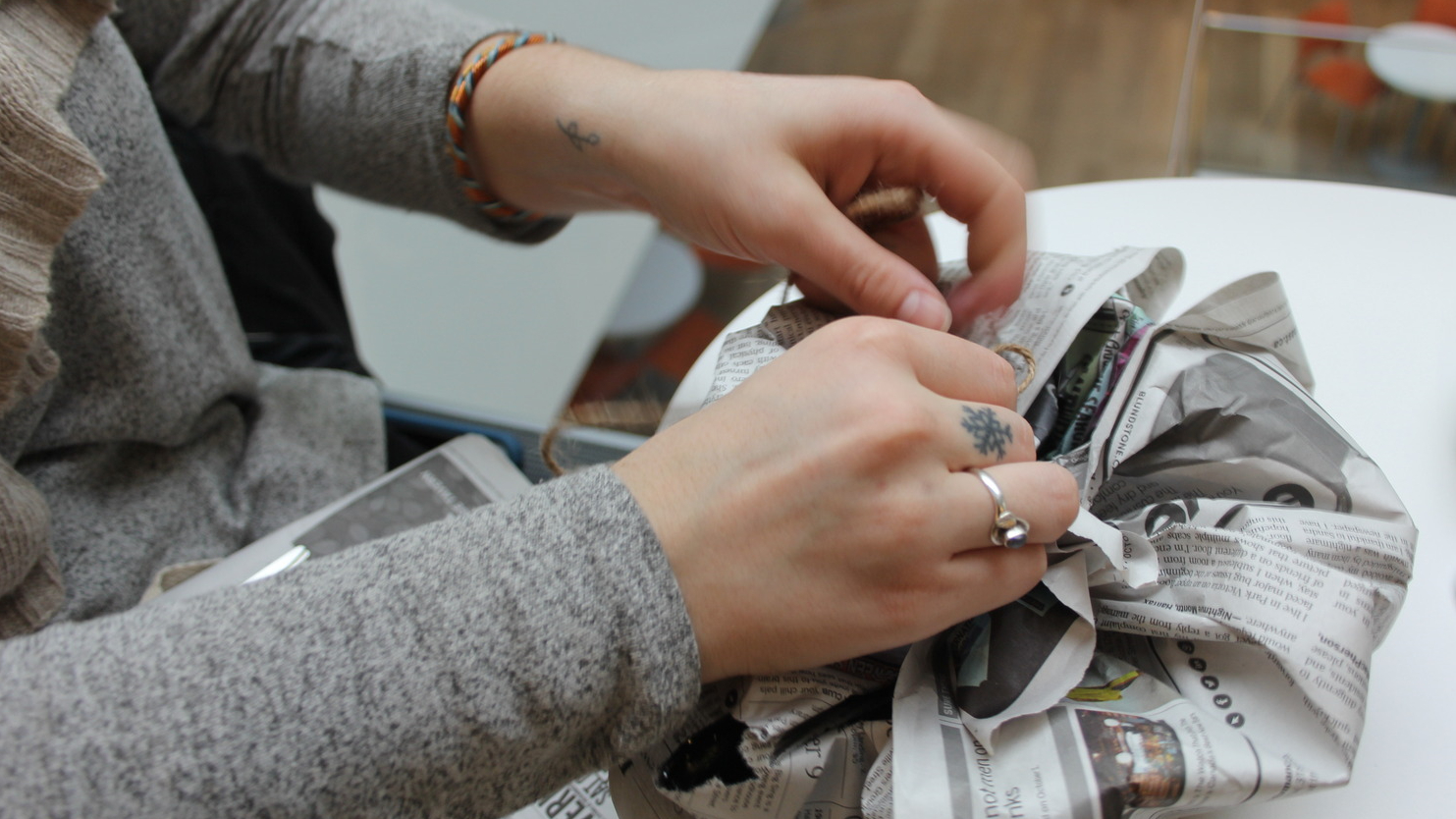How to reduce waste this holiday season
Waste production increases by 25 per cent during the month of December

caption
When it comes to wrapping presents, sustainability experts urge people to reuse materials, such as newsprint, in order to avoid waste.Sustainability experts are urging the public to pay extra attention to their waste production during a time of year when we throw out more trash than usual.
Zero Waste Canada estimates Canadians produce about 50 kilograms of garbage, which end up in landfills, per person over the holiday season – 25 per cent more than the rest of the year.
“I mean, all you have to do is go into a department store, or a big box store and watch what people are bringing out. And that’s going to tell you why we need to be mindful,” said Kirk Symmonds, team lead of Halifax Regional Municipality’s solid waste department.
Decorations
Alyssa Hill, who works in climate adaptation at the Climate Risk Institute, says there are plenty of ways to get in the holiday spirit without being wasteful.
“I think there’s lots of opportunities to make your own decorations, DIY stuff from Pinterest. Also, thrifting decorations from Value Village, that sort of thing,” said Hill.
Food
Food waste is a major problem in Canada, with each household throwing out 140 kilograms of food annually, amounting to nearly 2.3 million tonnes of edible food wasted across the country every year, according to HRM’s garbage, recycling, and green cart education and outreach website.
Symmonds urges the public to check out the city’s campaign, Food Isn’t Garbage, during this time of food-centric celebrations, to learn how to reduce food waste.
“And use your leftovers. That’s a huge thing,” said Hill. “So freezing leftovers, if you can, you can reuse the leftovers in soups or stews, that sort of thing. And also, composting what you can’t eat.”
Gift giving
Dalhousie University sustainability manager Kareina D’Souza says we should be more intentional in gift giving and avoid “purchasing things for the sake of it.” She says the best strategy is to avoid material items completely.
Instead, she said, opt for non-material goods. “Events, or even a gift card to a local store, or groceries or things that I know that person needs, that isn’t just yet another item that’s going to sit in their house because they feel too guilty to get rid of it or re-gift it or whatever.”
Hill says if you are going to purchase an item, find something second-hand and/or buy locally.
Gift wrapping
When it comes to wrapping gifts, D’Souza says it’s very easy to avoid waste by using a reusable bag or box, or something that is part of the gift itself, such as a clothing item, blanket, or towel.
If you are going to use wrapping materials, D’Souza and Symmonds both encourage people to steer clear of multi-medium wrapping paper, such as paper with plastic or foil. Instead, use paper-only products that can be recycled properly.
“The reality is most wrapping paper is on a present for like a week, and then it is thrown in the garbage and then it lasts forever,” said D’Souza. “So I try to encourage people to think mindfully about every decision as part of the process of gifting something.”
The bigger picture
Symmonds, Hill, and D’Souza all urge the public to consider what the holidays really mean to them as a strategy for reducing waste.
“Reflect more meaningfully on what you’re trying to provide by giving gifts,” said Hill. “I know for my parents, the best gift they could receive is spending time with my sister and I. There’s so many ways that I can make that happen without there being any sort of material waste.”
Opting to serve fair-trade coffee or tea at holiday events, using LED lights and sustainable modes of transportation as much as possible are simple, yet meaningful decisions, said D’Souza.
“It’s also a good opportunity, when you’re spending time with friends or family who may not be quite as, you know, environmentally conscious, to help create a learning opportunity,” said D’Souza.
Symmonds encourages people to check out HRM’s many resources.
“We have our Halifax Recycles app, we have our Facebook page, we have sorting calendars and guides that we put out, we have an email, you can even call 311 for the right information. But instead of taking that approach, some folks will ask their brother’s uncle’s hairdresser’s mechanic about recycling, and they’re always wrong.”
D’Souza says while the holidays may be a time that people want to “turn their brains off,” it is essential we stay mindful of our wasteful habits.
“But the reality is that climate change and environmental issues that we’re facing are still around, and they’re still going to need everybody’s help to try to make a difference.”
About the author

Marley Jokinen
Marley is a Master of Journalism student at the University of King's College. Marley obtained her Bachelor's of Arts with Honours Specialization...
